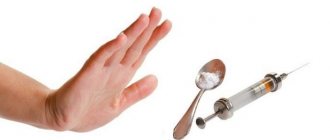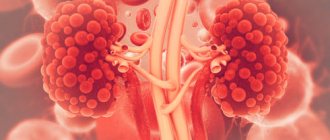More than 30 years of effective work
Consultation with a doctor
Treatment of alcoholism is always associated with difficulties in overcoming traditions and foundations. It is not always easy to decide to seek drug treatment. And yet, most people suffering from alcohol addiction sooner or later come to the conclusion that they cannot do without the intervention of a specialist. The Transfiguration Clinic in Moscow provides effective, individually tailored treatment for alcoholism on anonymous terms. Only effective and clinically proven techniques are used.
The therapeutic course includes restorative therapy, which allows you to compensate for pathologies formed as consequences of drinking alcoholic beverages. Our therapy focuses on the underlying factors that cause cravings for alcohol and the consequences of alcohol abuse.
Why is alcoholism treatment needed?
Unfortunately, many people are still convinced that this is not a disease at all; they can cure it on their own by stopping drinking by force of will. However, any competent specialist will say that this is not so: alcoholism is a complex, serious illness associated with persistent metabolic disorders. Here are the stages of its development:
- Mental dependence. It is difficult to distinguish it from everyday drunkenness. The difference lies in the persistent attachment to alcohol and the constant search for reasons to drink it. It lifts your spirits and seems to improve your quality of life.
- Physical dependence. There is a gradual increase in alcohol tolerance (tolerance). In order to experience the desired degree of intoxication, increasingly higher dosages are required. Often, addicts mistake this for a special type of hardening or endurance and are proud of the fact that they can drink a lot and not get drunk. At the same time, the next day after the next excess, a bad condition appears (tremors in the body, high blood pressure, palpitations, etc.). This feeling (hangover, withdrawal symptoms) can be relieved with a small dose of alcohol. After improving your health, a person feels cheerful, healthy and ready to work. This indicates a developed metabolic disorder that remains with the addict for the rest of his life, even if he does not drink alcohol.
- Complications. The body stops tolerating large doses of ethanol. It is enough for such a person to drink a little and he quickly becomes drunk. Against this background, severe complications develop from the internal organs, central and peripheral nervous systems, the patient drops out of society, losing all previously developed connections.
Is it possible to help an addict? Undoubtedly. One of the country's first private alcohol addiction treatment centers, Preobrazhenie, has been dealing with this problem for many years. Professionals with extensive experience work here. They can help the patient at any, even the last stage of the disease.
How alcoholism is treated in our clinic
Treatment measures are carried out in stages and include:
- sobering up, removal from the body of ethanol metabolic products, which are strong toxins;
- restoration of normal metabolism and elimination of the consequences of toxic effects on the body;
- suppression of mental cravings for alcohol using individually selected psychotherapeutic techniques;
- consolidation stage: at the request of the patient, he undergoes a consolidation session of psychotherapy with the introduction into the subconscious of a ban on alcohol or a drug that causes his intolerance.
Specialists at an alcohol addiction treatment clinic in Moscow select an individual treatment plan for each patient. This allows you to achieve long-term stable remission. Most patients no longer return to their addictions.
Particular attention is paid to spiritual education in special classes. The purpose of these meetings is not to teach the Law of God, but to jointly reflect on various aspects of human life. The clinic has a hospital church, which is cared for by an Orthodox priest, the rector of the temple.
Sobering up
This stage can be carried out:
- on an outpatient basis – carried out in the initial stages of the disease;
- at home – visit by an experienced narcologist trained in providing emergency assistance; for sobering up, a drip is placed, medicinal solutions are administered that flush out toxic products, restoring the functioning of internal organs and the nervous system;
- in a hospital - patients who have been on a long-term (more than 7 days) binge, have severe diseases of internal organs or have suffered psychosis (delirium tremens) are subject to hospitalization; in a hospital they can receive all the necessary care, including intensive care; complete suppression of mental cravings for alcoholic beverages.
Psychotherapeutic techniques begin to be used at the sobering stage. The doctor unobtrusively talks with the addict and his relatives, guiding them towards full-fledged complex therapy.
After sobering up, the most suitable method of psychotherapeutic influence is selected for the patient: individual or group psychotherapy sessions using various techniques. At the alcoholism treatment center in Moscow, great importance is attached to the spiritual revival of the individual.
Coding
Coding is the consolidating stage of therapy. It is carried out at the request of the patient and can be:
- medicinal - in the form of injection or sewing into the muscle of drugs that cause alcohol intolerance (Torpeda, Esperal, SIT, NIT, etc.); depending on the type of medication and its dosage, the effect will last for a certain time;
- psychological coding - the introduction of a ban on use in the subconscious of the addict, also for a certain period, agreed with the patient.
Contact phone number
+7 (495) 774-62-59 around the clock
Request a call
When treating alcoholism, the result depends on a combination of several factors.
This includes the desire of the patient and his relatives to overcome the disease, the competence of doctors, and the availability of modern equipment and proven working techniques in the alcoholism treatment clinic. The patient’s quality of life, the ability to accept oneself and the world objectively, as a friendly, positive environment for a normal life, and not as a field of constant battle with everyone and everything, comes to the fore. The ability to cope with difficulties soberly does not come overnight; it is the result of certain efforts. Trust in people and God will also not return on its own (it’s no secret that alcoholics trust few people or anything), you’ll have to work on yourself for this. But the result is worth it. People who quit drinking alcohol are especially able to enjoy life and the new possibilities of sobriety.
It is possible to cure alcoholism, just come to our clinic and you will be treated by the best specialists in the field of alcoholism treatment. Alcoholism is quite treatable using modern methods, and a positive result is guaranteed if all recommendations and guidelines of the treatment team are followed.
Treatment prices
How much does treatment for alcoholism cost?
The clinic has average prices, which depend on:
- stages of the disease;
- the age of the patient and the presence of chronic illnesses.
| Service | Price in rubles |
| Appointment with a narcologist | from 2500 |
| Outpatient program | from 5500 |
| Inpatient therapy | from 8000 |
| Coding | from 7000 |
| *Price may vary. Check by phone. | |
What is the effectiveness of services
The results are higher than in Russia as a whole. Most of those treated do not drink alcohol for a long time; many of them have maintained a sober lifestyle for more than 30 years. If you really want to help your loved one who is addicted to alcohol, contact us.
Benefits of in-clinic therapy
- guarantees of anonymity;
- comfortable conditions;
- unique author's techniques;
- using only effective techniques;
- complete security;
- individual approach to the problem;
- highly qualified specialists;
- connecting theory and practice;
- only highly effective and modern drugs;
- accelerated goal achievement.
Anonymous treatment of alcoholism in hospital and outpatient in Moscow
Not all people who are aware of their pathological dependence on alcohol are ready to undergo treatment completely officially, placing all their personal data at the disposal of medical workers.
Despite the fact that any doctor is obliged to sacredly keep medical confidentiality and act in the interests of the patient (remember the general principle of deontology - “do no harm”), many patients fear that, if not the diagnosis, then information about what kind of therapy they received, and which medical institution they were in at that time, one way or another, can become the property of, say, their work colleagues or, even worse, their superiors.
Needless to say, such data can significantly complicate not only career success, but also personal life?
And if we talk about the system of state assistance to patients with alcoholism, all these fears are not without foundation.
“Harmful” diagnosis - alcoholism
We all understand that “alcoholism” is a stigmatizing diagnosis. That is, a diagnosis, the publication of which can lead to significant difficulties in the patient’s social life.
This is how the general idea of alcoholism has developed that despite the patient’s awareness of his problem, a burning desire to overcome addiction to alcohol, active cooperation with doctors, a certain shade of mistrust and bias towards a person who has problems with alcohol remains.
This stereotypical opinion, deeply rooted in the “collective unconscious,” is based both on insufficient awareness of modern effective treatment methods, and on the general idea of alcoholics as “lost”, incurable people.
Hence - elements of discrimination, conscious or unconscious mistrust, and, often, ridicule or contempt.
Fighting mass prejudice is difficult and irrational. Not everyone can voluntarily and publicly declare themselves alcoholics.
It is for all those patients who would like to keep the fact of their treatment a secret that at the Rehab NOW Center for Narcology and Psychiatry (REHAB NOW) there is a program for anonymous treatment of alcoholism.
With the advent of the Internet era, almost everyone knows what “anonymous” is (from the ancient Greek ἀνώνυμος - nameless, unknown).
Anonymous and confidential therapy for alcoholism
Treatment of alcoholism anonymously is a completely complete system of therapy, both outpatient and inpatient.
Treatment of different stages of alcohol addiction
Practice has established that for a successful result it is necessary to carry out complex therapy taking into account the consequences of alcohol intoxication.
The time of onset of chronic intoxication depends not only on the stage of alcoholism, duration of use and quality of alcoholic beverages taken, but also on the constitutional vulnerability of individual body systems. We cannot discount the social consequences, working and living conditions.
When drinking alcohol, the toxic signs of intoxication intensify (including the next morning - headache, weakness, lack of appetite, relaxation); the sedative effect is reduced; both in intoxication and in a sober state, vitality, motor activity, and mood increase; Appetite, sleep, and sexual function are not disturbed. Drinking alcoholic beverages during daylight hours does not cause discomfort; the feeling of satiety in intoxication remains, vomiting in case of overdose, but the next morning the disgust when remembering alcohol disappears. An increase in vitality can be replaced by long periods of irritability and conflict (which is relieved in a state of intoxication).
Treatment of alcoholism in the first stage
The duration of the stage, depending on the intensity of alcohol consumption and the individual parameters of the body’s development, can last from 1 year to tens of years.
Syndrome of altered reactivity: a 4-5-fold increase in tolerance, the ability to take high doses daily, disappearance of vomiting in case of overdose, a pronounced activating effect of alcohol with preserved sedation, forgetting individual episodes of the period of intoxication (palimpsests).
Mental dependence syndrome: constant thoughts about drinking, high mood in anticipation, feeling of dissatisfaction when sober. The attraction is still controllable. In a moderate degree of intoxication, mental functions accelerate, but some of them with a loss of quality (for example, superficiality, distractibility with an expanded attention span).
There is no physical dependence syndrome, and the consequences of intoxication may be limited to asthenic manifestations, temporary somatoneurological dysfunctions with nonspecific symptoms.
Treatment of alcoholism in the second stage
According to statistics, it lasts from 5 to 15 years. Altered reactivity syndrome: maximum alcohol tolerance; drunkenness is daily, breaks are explained by external circumstances (lack of money, conflict) and create the impression of periodicity - so-called pseudo-binges. The sedative effect of alcohol disappears, only the activating effect is observed. Palimpsests are replaced by complete amnesia at the end of intoxication with external orderliness of behavior, in contrast to a non-alcoholic, which occurs during soporotic intoxication with immobility; Initially, memory loss occurs when taking high doses.
Mental dependence syndrome: well-being depends on the persistence of intoxication; in a sober state – disorganization of mental activity, inability to perform mental work; the attraction that occupied the thoughts, determined the mood and feelings, is now suppressed by intense physical dependence. The latter is determined by an uncontrollable attraction to alcohol, dictating behavior that distorts ideas about moral values and relationships. In a sober state, the patient is relaxed, depressed, irritable, and incapacitated. Drinking alcohol restores physical function, but loss of control usually leads to excessive intoxication.
A sharp break in drunkenness causes withdrawal syndrome in the form of sympathico-tonic overexcitation in the mental and somatoneurological spheres: exophthalmos, mydriasis, hyperemia of the upper body, pastiness, large hot sweat, tremor of the fingers, hands, tongue, eyelids, gray-brown, thick coating on tongue, nausea, vomiting, loose bowels, urinary retention, lack of appetite, insomnia, dizziness and headache, pain in the heart and liver. An increase in anxiety, restlessness at night, and a seizure may be harbingers of acute psychosis.
Treatment of alcoholism in the second stage is complicated by the consequences of intoxication and profound mental disorders. This syndrome is represented by a decrease in personality level, loss of creative potential, weakening of intelligence, psychopathization, and affective disorders. Delusional ideas of jealousy, expressed at first only in a state of intoxication, can later develop into persistent delusions, extremely dangerous for the patient and his loved ones.
Neurological examination reveals neuritis, scotomas, narrowing of visual fields, decreased hearing at certain frequencies, ataxic disorders, nystagmus, impaired accuracy and coordination of movements, and possible acute cerebral syndromes. Somatic examination reveals damage to the cardiovascular system, liver, etc.
Any intercurrent illness, injury, or surgical intervention can be complicated by acute alcoholic psychosis. High alcohol tolerance creates cross-tolerance to some anesthetics.
Treatment of alcoholism of the third stage
Duration – lifelong. As a rule, people with this disease, due to the developing consequences of alcohol consumption and without proper help, live no more than 5-10 years. Therapy should be started only in a hospital setting. This is due to the presence of severe complications of this disease.
The third stage is characterized by altered reactivity and decreased tolerance to alcohol. Many days of drunkenness ends in psychophysical exhaustion (true binges) followed by abstinence from several days to several months, systematic (daily) drunkenness may persist, deep intoxication is achieved in small doses. The activating effect of alcohol is reduced, it only moderately levels out the tone, and almost every drinking session ends in amnesia.
Mental dependence syndrome: the severity of symptoms is insignificant due to the severe mental changes that have occurred by this time.
Physical dependence syndrome: uncontrollable attraction determines the patient’s life; the lack of quantitative control combined with decreased tolerance often leads to fatal overdoses. Intense attraction is also manifested by a loss of situational control (there is no criticism of the place, circumstances, company of drinking buddies), which is facilitated by the ensuing loss of intellectual capabilities.
Withdrawal syndrome is represented mainly by autonomic disorders: lethargy, immobility, drop in cardiovascular tone, pallor, cyanosis, cold sweat, sunken eyes, sharpened facial features, muscle hypotonia, ataxic disorders (up to the inability to move independently).
Syndrome of the consequences of intoxication: not only functional, but also organic lesions of vital systems, in the genesis of which, in addition to the toxic effects themselves, metabolic and trophic disorders, enzymopathies, neurotransmitter dysregulation, etc. play a role.
Signs and stages of alcoholism
Prodromal stage
Stage zero, or prodrome, occurs when the disease itself has not yet developed, but everyday drunkenness occurs.
Alcohol consumption occurs according to the situation, in the company of friends, while the person does not get drunk to the point of unconsciousness or other consequences. At this stage, a person is able to stop drinking alcohol at any time.
The duration of the prodrome stage depends on the individual characteristics of the person, on average it takes 6–12 months.
A short prodrome is typical for asthenics. At this stage, a person is indifferent to whether drinking will happen in the near future or not.
Also, after drinking in a group, he does not drink afterwards on his own. The danger lies in the fact that with daily drunkenness, the prodrome goes into the first stage of alcoholism.
First stage of alcoholism
The first stage of the disease is characterized by an increase in the amount of alcohol consumed and the development of the body's tolerance to alcohol.
The main signs of the first stage of alcoholism are:
- Disappearance of the gag reflex;
- Drinking alcohol alone (after work, before meals, etc.);
- The desire to drink at a seemingly inopportune moment (on the road, at night);
- The appearance of memory lapses, changes in the nature of intoxication
- Scandals in the family, quarrels with work colleagues;
- Loss of interest in such aspects of life as politics, literature, hobbies.
Note that if it is impossible to drink, the craving for alcohol temporarily disappears. But if you drink alcohol, you lose control of the amount you drink.
Second stage of alcoholism
In the presence of the second stage of alcoholism, the alcoholic’s tolerance to alcohol increases significantly, without noticing it, the person takes very large doses.
Behavior changes, it becomes unpredictable, and sometimes dangerous for him and others.
Physiological dependence on alcohol develops. The hangover in the morning is severe, productivity drops sharply. There is a desire to get over your hangover in any way.
The condition is accompanied by physiological changes - nausea, increased blood pressure, rapid heartbeat, trembling of the limbs, and elevated temperature.
Any external stimulus is painfully unbearable. The mood is tense, depressive, gloomy. Changes affect the patient's personality. This manifests itself in indifference to one’s social status, deceit, short temper and anger.
It often comes to assault. There is a decrease in intelligence and loss of active attention.
Such a patient has an awareness of the harm and consequences of his addiction, but there is no fight against it; it is easier for him to obey the desire. This stage of the disease is characterized by the fact that in a state of intoxication, self-control disappears, there is no feeling of shame or awkwardness.
Third stage of alcoholism
This is the last, most difficult stage in terms of treatment. Alcohol is consumed almost daily, the person is in a state of binge drinking.
What changes are characteristic of the third stage?
Severe personality degradation, pathological changes in the psyche.
In addition, organic changes characteristic of this disease develop:
- Alcoholic gastritis;
- Cirrhosis of the liver;
- Alcoholic indurative pancreatitis;
- Alcoholic cardiomyopathy;
- Alcoholic neuropathy;
- Alcoholic encephalopathy;
- The course of other existing diseases not related to alcoholism worsens.
At this stage, paresis and paralysis of the limbs also develop; There are many psychiatric symptoms:
- Hallucinations;
- Delusional and obsessive ideas;
- Phenomena of mental automatism
- Alcoholic delirium (“delirium tremens”), etc.
The patient requires treatment, preferably with hospitalization and medical observation. Treatment of such patients is complicated not only by their mental state, but also by pathological changes in the entire body, including the vascular bed.
Medicines are administered intravenously, so the therapeutic effect occurs more quickly.
Delirium tremens - delirium delirium
The following myths about “delirium tremens” should be dispelled so that the patient can receive timely help.
Firstly , an attack of delirium occurs not during, but after drinking alcohol, as a continuation of the withdrawal syndrome. Abruptly stopping alcohol intake is literally life-threatening for the alcoholic.
Secondly , aggressive behavior on the part of the patient is not necessary. One can suspect “delirium tremens” when his mood becomes suspiciously cheerful, he strives for exploits and heroism.
Remember, the mental state of an alcoholic is unstable, his behavior can change dramatically at any moment.
Prices for treatment of alcoholics
Be attentive to your family and friends!
Features of alcoholism of the third stage
There is devastation of the psyche, loss of emotional range, primitive affects (cruelty, anger), the manifestation of which is mitigated only by a drop in excitability and impoverishment of will. Fluctuations in the emotional background often look like dysphoria rather than depression. Dementia is often represented by pseudoparalytic manifestations.
Chronic hallucinosis, alcoholic paraphrenia and delusions of jealousy are possible.
The patient is not capable of organized productive activity and needs coercion and control. Neurological examination reveals encephalopathy and polyneuritis; up to 20% of old drunkards suffer from epileptic seizures, sometimes acute Gaye-Wernicke syndrome develops, which is life-threatening.
A somatic examination reveals pathology of all systems and organs; A combination of cardiomyopathy and liver damage is typical. Diagnosis. Patients look older than their years, their hair is tousled and dull. The face initially has a uniform pinkish color (which, combined with pastiness, gives the impression of “steaminess”), but over the years it becomes hyperemic. With abstinence, hyperemia gradually disappears, and against the background of pallor, telangiectasias appear on the wings of the nose, cheeks, neck, and upper chest. Skin turgor is lost. Muscle tone is restored when drinking alcohol. Relaxation of the orbicularis oris muscle gives a special appearance to facial weakness and volitional promiscuity. Carelessness in clothing and uncleanliness are often noted.
Treatment of alcoholism in a hospital
According to European authors, from 20 to 40% of the total bed capacity is occupied by patients with alcohol dependence and persons whose condition has worsened due to alcohol abuse.
The behavior of an alcoholic in a hospital is characteristic: carelessness, frivolity, lack of an adequate reaction to his condition and feelings of distance in communication with staff and other patients, violation of the regime, including the use of alcoholic beverages; visits from drunken visitors. Not only the patient’s frequent visits to the doctor (for alcoholism, up to 10-12 visits a year), but also the characteristics of his behavior and personality should help the local doctor suspect addiction and refer the patient for consultation with a narcologist.
The presence of psychosomatic disorders in the family, neuroticism and even psychopathization of a non-drinking spouse are found with great frequency in families of alcoholics. The pathology of children is indicative, which is noticed by attentive pediatricians.
Cost and terms of alcoholism treatment at the Rehab Nau clinic
Our alcoholism treatment programs are designed for clients of different income levels. There are very affordable programs and VIP level programs with individual accommodation and treatment in conditions of high comfort.
In any case, all patients receive qualified and effective care, the result is always positive.
In our Center, treatment for alcoholism is the main focus, this is our priority. We involve the best specialists in this field, including those from abroad, in the process of treatment for alcoholism. We managed to build the process in such a way that the patient, from the first day of his stay in the clinic, understands that the disease can be overcome, begins to believe in himself against the backdrop of powerful professional support from our specialists, and this has an additional effect, recovery is much faster. The medical part is very rich in procedures, including plasmapheresis, xenon therapy, metabolic therapy, hepatoprotective therapy, neuroprotective therapy and much more. Body therapy can also be very effective; it is an important part of treatment for alcoholism.
After the first stage, psychotherapists and psychiatrists begin working with the patient. The patient’s habitual behavior patterns, personal conflicts that are not fully satisfied in use and beyond its needs, and much more are examined.
Problems in the family are also the object of close attention from the treatment team. Together with the patient and his relatives, a healthy constructive atmosphere of mutual acceptance and respect for each other is formed. Family becomes a source of joy and support rather than tension and anger.
treatment in a general ward (treatment, food, psychological assistance) from 6,000 rubles per day
treatment in a single room from 10,000 rubles per day
treatment in a VIP ward from 16,000 rubles per day
Treatment of female alcoholism
Alcoholic women who continue to drink alcohol during pregnancy give birth to a so-called alcoholic fetus with gross morphological abnormalities: incorrect head size and the relationship of the head, body, limbs, facial and cerebral parts of the skull; spherical or deep-set eyes, wide bridge of the nose, recessed base of the nose, underdevelopment of the jaw bones, shortening of the long bones.
Children of alcohol-abusing parents often suffer from congenital small cerebral insufficiency (excessive mobility, lack of concentration, desire for destruction, aggressiveness); their motor and mental development and mastery of practical skills are slowed down or unsatisfactory. In all cases, when parents are drunk, children grow up in a psychotraumatic situation and show signs of neuroticism (logoneurosis, enuresis, night terrors), behavioral disorders (stubbornness, aggressiveness, running away from home) and emotions (anxiety, depression, suicidal attempts); their mental development is impaired, difficulties in learning and contacts with peers are obligatory.
Laboratory data
The analysis confirms the fact of chronic alcohol intoxication: high and fluctuating 2-3-fold within 1 week - 10 days, the activity of the complex of enzymes GGT, AST, ALT (the activity of GGT in combination with ACT increases most often and significantly); fluctuations in activity indicate the intoxication nature of the deviations and make it possible to distinguish them from enzymopathies as a somatic pathology.
With abstinence during a period of domestic drunkenness or prodrome, enzyme activity returns to normal; the formed disease maintains high activity of GGT, ALT and AST for up to six months. In advanced cases of alcoholism, enzyme parameters often remain within normal limits (depletion of functional responses), but at this stage of the disease the diagnosis does not cause difficulties.
An increase in the corpuscular volume of red blood cells is also an indicator of chronic alcohol intoxication. Treatment is carried out in narcological clinics and hospitals, in specialized departments and wards of psychiatric hospitals by narcologists and psychiatrists.
Symptoms of alcoholism
On what basis does a doctor diagnose alcoholism?
Based on the presence of certain signs and symptoms:
- A person loses control over the amount of alcohol he drinks;
- The presence of partial retrograde amnesia (the person does not remember what happened during or after drinking);
- Severe morning hangover;
- Lack of gag reflex even when drinking large amounts of alcohol;
- Regular binge drinking.
Tasks
The goals of therapy are to relieve withdrawal symptoms, the consequences of intoxication, suppress desire, create the inability (sensitization, conditioned reflex aversion) to drink alcohol, change the attitude towards drunkenness (psychotherapeutic reorientation, hypnosis). Refusal of treatment requires compulsory referral. Therapy in the general medical network (calling a doctor to your home, “home drips”) is not effective and is often dangerous in cases of heavy drinking for more than 3 days in those who frequently take alcohol.
For patients with alcoholism, the symptomatic administration of sedatives and hypnotics is contraindicated due to the danger of polysubstance abuse.
In the general medical network, cases of the development of acute alcoholic psychosis (delirium tremens) are possible, which should be quickly stopped, while dehydration and maintenance of cardiovascular activity are necessary. This can only be done in a specialized hospital.
Forecast
The prognosis of the course depends on the duration and intensity of abuse, the type of alcoholic beverages, the use of surrogates, and the nature of the consequences of intoxication. Death occurs as a result of decompensation of vital systems due to binge drinking, excesses, withdrawal states, and intercurrent diseases, in which the mortality rate of alcoholics is 5-7 times higher than the average.
Anti-alcohol outpatient treatment only stops the development of the disease at a certain stage. In advanced cases, mental and somatoneurological disability increases, despite abstinence from alcoholic beverages, due to the resulting deficit of neuroendocrine regulation, profound metabolic disorders, nutrition, organ pathology (atrophy of brain tissue, dysfunction of the liver, pancreas, etc.).
Complex treatment and rehabilitation therapy
Treatment of alcoholism in our clinic is carried out simultaneously in two directions. At the first stage, with the help of new generation drugs, we achieve complete cleansing of the body from metabolic products of alcohol, toxins and waste. We normalize the functioning of all organs and systems of the body, eliminate functional failures, and restore the protective properties of the body.
The ultimate goal of this direction is the relief of withdrawal symptoms in the shortest possible time and the overall improvement of the body. This achieves the effect of normalizing the state of the central nervous system and its regulatory effect on other systems of the body. The procedures significantly relieve tension, stress, physical and mental fatigue, improve well-being, increase efficiency, and normalize sleep.
Eliminating physical dependence is destroying the foundation of alcoholism, but this is only half the battle. Therefore, the second direction is the liberation of consciousness from pathological associative connections with alcohol. Classic principles of psychotherapy are used with the addition of elements of psychoanalysis. There are conversations with a psychologist, individual and group classes, and a course of lectures on various topics related to the use of alcoholic beverages. Classes are conducted only on a conscious level; we do not use any methods of pressure or influence on the subconscious. Additionally, individual lessons and lectures can be provided.
Spirituality
The program includes a course of family therapy. These are lectures for relatives of patients, which are held with the aim of harmonizing family relationships. Joint psychotherapy sessions are possible, during which a course of lectures will be given on various problems arising from alcohol addiction.
Treatment of alcoholism may include blocking the painful addiction to intoxication using the prohibitive method (coding). The essence of all prohibitive procedures is to create a chemical barrier to prevent the patient from drinking alcohol. The effect is achieved due to a combination of the pharmacological effect of the drug and psychological awareness of the severe consequences of drinking alcohol. The “coding” technique is carefully selected individually, without disturbing the normal biological, chemical and psychological processes of the body.
We help, even if previous treatment was not effective!











